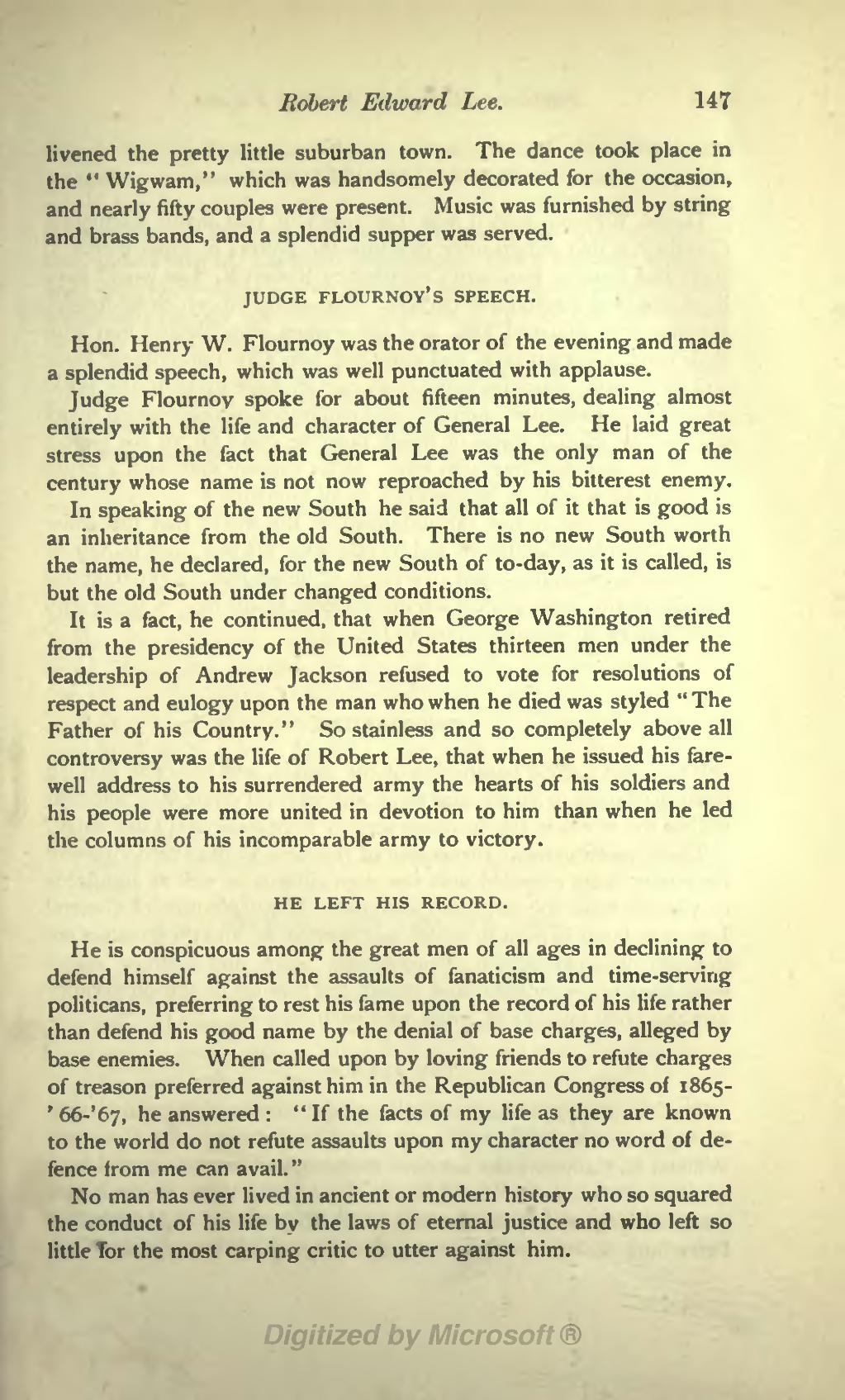Robert Edward Lee. 147
livened the pretty little suburban town. The dance took place in the " Wigwam," which was handsomely decorated for the occasion, and nearly fifty couples were present. Music was furnished by string and brass bands, and a splendid supper was served.
JUDGE FLOURNOY'S SPEECH.
Hon. Henry W. Flournoy was the orator of the evening and made a splendid speech, which was well punctuated with applause.
Judge Flournoy spoke for about fifteen minutes, dealing almost entirely with the life and character of General Lee. He laid great stress upon the fact that General Lee was the only man of the century whose name is not now reproached by his bitterest enemy.
In speaking of the new South he said that all of it that is good is an inheritance from the old South. There is no new South worth the name, he declared, for the new South of to-day, as it is called, is but the old South under changed conditions.
It is a fact, he continued, that when George Washington retired from the presidency of the United States thirteen men under the leadership of Andrew Jackson refused to vote for resolutions of respect and eulogy upon the man who when he died was styled " The Father of his Country." So stainless and so completely above all controversy was the life of Robert Lee, that when he issued his fare- well address to his surrendered army the hearts of his soldiers and his people were more united in devotion to him than when he led the columns of his incomparable army to victory.
HE LEFT HIS RECORD.
He is conspicuous among the great men of all ages in declining to defend himself against the assaults of fanaticism and time-serving politicans, preferring to rest his fame upon the record of his life rather than defend his good name by the denial of base charges, alleged by base enemies. When called upon by loving friends to refute charges of treason preferred against him in the Republican Congress of 1865- ' 66-' 67, he answered : "If the facts of my life as they are known to the world do not refute assaults upon my character no word of de- fence from me can avail. "
No man has ever lived in ancient or modern history who so squared the conduct of his life by the laws of eternal justice and who left so little Tor the most carping critic to utter against him.
